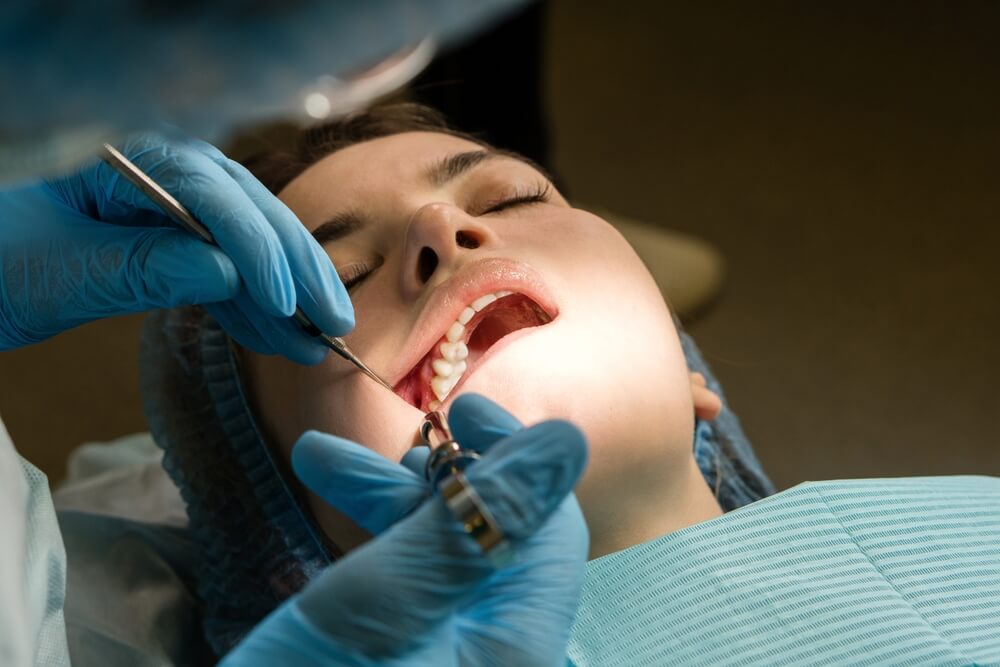If you’ve noticed that your teeth tend to get sensitive in extreme temperatures, whether hot or cold, you’re not alone!
This type of dental discomfort, often triggered by extreme temperature fluctuations, can stem from various issues. These include tooth decay, exposed dentin (the tooth’s inner tissue), nerves agitated by teeth grinding, or even deteriorated dental fillings.
Janz Family Dental is here to help you understand why your teeth may be sensitive to hot and cold, the underlying reasons for this pain and ways you can manage it.
Understanding Tooth Sensitivity
Tooth sensitivity, or “sensitive teeth,” is a condition where the teeth experience pain or discomfort when exposed to certain temperatures, especially extreme heat or cold. This sensitivity occurs when the underlying layer of the tooth, known as dentin, becomes exposed. Usually, dentin is protected by the hard outer enamel layer and the gums.
Common Causes of Winter Tooth Sensitivity
- Enamel Wear – The protective layer of enamel can wear down over time due to factors like brushing too hard, eating acidic foods, or grinding teeth. Thinner enamel means
more exposure to temperature extremes.
- Gum Recession – Gums may recede due to various reasons, such as gum disease or aggressive brushing, exposing the sensitive root area.
- Temporary Changes in Cold Weather – Cold air itself can be a trigger. Breathing in cold air or consuming hot beverages or cold foods can cause sudden, sharp pain in sensitive teeth.
Treating Sensitive Teeth: What Are Your Options?
If you’re dealing with tooth sensitivity, the treatment plan your dentist suggests will vary based on the extent of the damage causing the sensitivity. Switching to a softer toothbrush or opting for an electric one is advisable to prevent further damage to your gums.
Fluoride treatments at the dentist’s office can strengthen your teeth’s natural defence mechanisms. Additionally, a fluoride gel or rinse at home and a specialized toothpaste for sensitive teeth can help manage and reduce sensitivity. It’s also beneficial to reduce sugary foods, as they contribute to acid buildup on your teeth and gums, eroding the protective enamel layer.
In more severe cases, your dentist might consider a root canal as the most effective solution to address the underlying issue causing the sensitivity.
Using Desensitizing Toothpaste
When you’re experiencing tooth sensitivity to extreme temperatures but don’t have cavities or visible tooth damage, a practical solution is incorporating toothpaste designed for sensitive teeth into your daily routine.
Products like Sensodyne Rapid Relief toothpaste can significantly relieve tooth sensitivity within three days of regular use. The critical ingredient, stannous fluoride, forms a protective barrier over the sensitive areas of your teeth, ensuring ongoing protection against sensitivity with twice-daily brushing.
Overcoming Seasonal Tooth Sensitivity With Janz Family Dental
If you experience persistent or severe tooth sensitivity, it’s essential to consult with a dentist. They can identify the exact cause and suggest appropriate treatments. Conditions like cavities, cracked teeth, or gum disease need professional attention.
At Janz Family Dental, we offer a range of dental services to help you manage tooth sensitivity effectively. By understanding the causes and implementing practical solutions, you can enjoy winter activities or your favourite hot beverages without the discomfort of sensitive teeth!






